Tumblr created solely to post Anti AO3 Block/Follow lists and other types of content that i fell are of interest
Last active 2 hours ago
Don't wanna be here? Send us removal request.
Text
The argument about Snape being an abusive teacher actually falls apart pretty quickly when you remember he did not support Umbridge in any single way and in fact made things deliberately difficult for her.
Had Snape been abusive, or sadistic, wanting to hurt the children, he would have openly supported and sucked up to Umbridge (like Filch did).
And he wouldn't be supplying her with fake Veritaserum or risking being put on probation for being "deliberately unhelpful".
500 notes
·
View notes
Text
Why can’t snape haters dislike him like normal people instead of saying he would be a pedophile or school shooter or something
517 notes
·
View notes
Text
I've noticed something about Snape—one of his biggest red lines, the thing that truly pushes him to his limit, is when someone's life is in danger.
In those moments, he becomes the most vulnerable version of himself. He forgets everything—every grudge, every precaution, every defense mechanism—and his only focus is getting people out of harm's way, no matter the cost.
So vulnerable that hearing about Ginny Weasley's kidnapping forces him to lean on the back of a chair. So vulnerable and unguarded that while saving Harry from Quirrell’s curse, an eleven-year-old sets him on fire. So vulnerable that, in his attempt to manage the chaos of the Shrieking Shack—with children, a werewolf, and a supposed murderer—he’s disarmed by 13-year-olds. He's so reckless that he makes an Unbreakable Vow for Draco. So reckless that he chases a werewolf, without Wolfsbane, under the full moon near sunset. So reckless that he ventures into the Forbidden Forest to find lost children. So reckless that he roams the hallways in the middle of the night, in his nightgown, chasing the sound of a scream. So reckless that, as a Death Eater, he risks everything to warn the leader of the opposite side about Voldemort's plans to kill the Potters—and is willing to give anything to save them. He's so ungrudging that he carefully carries an unconscious Sirius Black. So ungrudging that when Black is captured, he checks on him immediately and alerts the Order of the Phoenix. So ungrudging that he risks his cover to save Lupin.
And I think these moments say so much about his humanity—things the books never fully explain.
1K notes
·
View notes
Text
Maybe it was Eileen he heard talking shit about Muggles. Eileen, who married a Muggle and gave up her entire world for that Muggle—who lowered herself to live in a shitty neighborhood, in a shitty house, surrounded by shit, all for that Muggle. Eileen, who could have had a decent life in the magical world but ended up not even being able to buy her son clothes in the Muggle one—all because of a man. The same man who yelled and was violent and scary and made her existence miserable. So Eileen probably told her son how amazing the magical world was compared to the hellhole they lived in, the opportunities he could have, and how good it would feel to be among people like him—not among those Muggles who only brought misery, poverty, and violence.
Because Eileen is often portrayed as a helpless victim and fairly loving toward Severus, but I prefer to think she also contributed to her son's cognitive dissonance, to his resentment, and to his obsession with becoming someone in the magical world. That precisely because of the trauma and personal drama, she wasn't in any condition to be a functional mother, nor was she particularly emotionally close. And maybe, over the years, Severus felt torn between a certain affection for her—because, after all, she hadn’t been a total piece of shit like his father—but also a deep internal resentment for feeling like she had never truly protected him, despite being a witch and having the upper hand.
147 notes
·
View notes
Text
A thought about Sirius' death
One thing that many potterheads often believe is that, had Severus been more competent at teaching oclumency, Sirius wouldn't have died but the fict The inner Light - HP Style by RedPony, while innacurate in it's portrayal of Snape's feelings for Lily and (during the events of books) towards muggles & muggleborns* posed a excelent question : would a branch of magic wich stops an invasion of the mind also work to stop a soul conection? The answer according to the author and as of now myself is a big fat

If you remember a big plot point of the last three books was that Harry James Potter was also Lord Voldemort's final horcrux and there's no freaking way that the horcrux in Harry would allow his conection to Voldemort to be closed in any way shape or form, specially since, unlike the diary, it didn't contain enough of Voldemort's soul to believe that it could exist on its on. It needed more and where could it find more? On the main vessel! But since it couldn't be reabsorbed by him, it could do the next best thing wich is to keep their conection open.Thus oclumency was always bound to fail even if Harry had mastered, however that dosen't mean that it wouldn't be useful for other things.
Oh, and in regards to Severus not hating muggles and muggleborns by the time the books take place, if he does then why the only muggleborn he is mentioned to have bullied is Hermione always follow the books Granger? Like, i get not mentionig the Creevey brothers, as they weren't in Harry's year but Dean Thomas was.
1 note
·
View note
Text
0 notes
Text
Severus thoughts on Children
"For nearly all of Severus Snape’s life, he had been cruelly teased and mocked by children. As a child on Spinner’s End, he was the dirty freak who spoke strangely and dressed in his mother's old clothes for lack of anything else to wear. His father, somehow ignorant of how he had caused the conditions that made Severus a pariah among the other schoolchildren, urged him to put down his books and go outside and play.
“Just go toss a ball around, roll in the mud, just be normal, for Christ’s sake,” the man grumbled as he pushed Severus out the door.
Even when Severus, Circe forbid, attempted to smile and join in on the neighborhood games, more often than not he ended up with a face full of mud and fresh bruises for his trouble. Then, Severus had met someone like him. Lily. She wasn't really much like Severus, besides their shared magic. Lily was beautiful while Severus was ugly, vibrant while he was sullen, and she was kind while Severus was sharp-tongued and hateful. But at least, for a time, Lily had loved him regardless. Hogwarts was an escape from the horrors of his home but also held even children to torment him. There was James Potter and his gang of miscreants, who thought Severus was weird, ugly, poor, and dark. Then, there were his housemates who also thought he was weird, ugly, and poor, but not dark enough. After his brief tenure in the Dark Lord's service, Severus returned to Hogwarts to be tormented by children once more. Once again he was weird, ugly, and dark. In addition, he was strict, cruel, and unfair. Children were uniquely cruel, Severus learned. Their insults no longer harmed him. Severus knew himself. He knew which taunts were true and which were false. As for the taunts that were true, he learned to accept them. "
This came from a fanfict (The Timble of the Banshee) but quite honestly, i do believe that it might be true for canonverse as well : Severus spent his whole life being mistreated by children so he mistreated children as well (not that this justifies it).
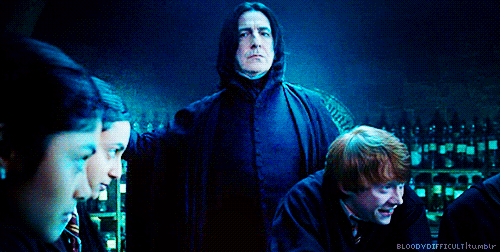
24 notes
·
View notes
Text
Severus Snape is literally the most important character of the entire Marauders' generation because the fate of all of them depends on him, and because, basically, they only exist, aside from giving Harry some parents and friends, to complete Snape's backstory. Without Snape, we wouldn’t even know what those people’s school years were like because it wouldn’t matter. It's to explain why Snape has issues, why he has that personality, why he switches sides, or why he helps Harry while simultaneously hating him that we get flashbacks and learn things about them. So, guys, you should show him a bit more respect because if you have a fandom, it's basically thanks to that character you constantly leave out of your fics filled with people with colored hair and 70s wizards behaving as if they went to school during the golden era of Gen Z.
248 notes
·
View notes
Text

For anyone who hasn't seen them before, Hidden Search Operators are handy tricks you can use when you're either searching or filtering AO3.
summary: string is a generic way of explaining that you can search AO3 for a specific word that appears in a summary. You can do this from the search bar in the header, from the Any Field box at the top of the Advanced Search form, or from the Search Within Results box at the bottom of the filter menu.
Examples:
summary: Bruce
summary: "Bruce Banner"
summary: Bruce OR summary: Banner OR summary: Hulk
You need to put quotation marks around your search term if it is more than one word. The quotes make sure that the site searches for those two words together.
The other two operators listed work best in the Search Within Results box.
expected_number_of_chapters: 1 will return results where every fic has only 1 chapter currently posted.
You can use expected_number_of_chapters: -1 if you want results where every fic has more than 1 chapter currently posted.
otp:true will return results where there is only 1 relationship tag on the fic. If you want results where there are 2+ relationship tags (and no fics with only 1 relationship tag) then you can use otp:false
27K notes
·
View notes
Text
10 Non-Lethal Injuries to Add Pain to Your Writing
New Part: 10 Lethal Injury Ideas
If you need a simple way to make your characters feel pain, here are some ideas:
1. Sprained Ankle
A common injury that can severely limit mobility. This is useful because your characters will have to experience a mild struggle and adapt their plans to their new lack of mobiliy. Perfect to add tension to a chase scene.
2. Rib Contusion
A painful bruise on the ribs can make breathing difficult, helping you sneak in those ragged wheezes during a fight scene. Could also be used for something sport-related! It's impactful enough to leave a lingering pain but not enough to hinder their overall movement.
3. Concussions
This common brain injury can lead to confusion, dizziness, and mood swings, affecting a character’s judgment heavily. It can also cause mild amnesia.
I enjoy using concussions when you need another character to subtly take over the fight/scene, it's an easy way to switch POVs. You could also use it if you need a 'cute' recovery moment with A and B.
4. Fractured Finger
A broken finger can complicate tasks that require fine motor skills. This would be perfect for characters like artists, writers, etc. Or, a fighter who brushes it off as nothing till they try to throw a punch and are hit with pain.
5. Road Rash
Road rash is an abrasion caused by friction. Aka scraping skin. The raw, painful sting resulting from a fall can be a quick but effective way to add pain to your writing. Tip: it's great if you need a mild injury for a child.
6. Shoulder Dislocation
This injury can be excruciating and often leads to an inability to use one arm, forcing characters to confront their limitations while adding urgency to their situation. Good for torture scenes.
7. Deep Laceration
A deep laceration is a cut that requires stitches. As someone who got stitches as a kid, they really aren't that bad! A 2-3 inch wound (in length) provides just enough pain and blood to add that dramatic flair to your writing while not severely deterring your character.
This is also a great wound to look back on since it often scars. Note: the deeper and wider the cut the worse your character's condition. Don't give them a 5 inch deep gash and call that mild.
8. Burns
Whether from fire, chemicals, or hot surfaces, burns can cause intense suffering and lingering trauma. Like the previous injury, the lasting physical and emotional trauma of a burn is a great wound for characters to look back on.
If you want to explore writing burns, read here.
9. Pulled Muscle
This can create ongoing pain and restrict movement, offering a window to force your character to lean on another. Note: I personally use muscle related injuries when I want to focus more on the pain and sprains to focus on a lack of mobility.
10. Tendonitis
Inflammation of a tendon can cause chronic pain and limit a character's ability to perform tasks they usually take for granted. When exploring tendonitis make sure you research well as this can easily turn into a more severe injury.
This is a quick, brief list of ideas to provide writers inspiration. Since it is a shorter blog, I have not covered the injuries in detail. This is inspiration, not a thorough guide. Happy writing! :)
Looking For More Writing Tips And Tricks?
Check out the rest of Quillology with Haya; a blog dedicated to writing and publishing tips for authors!
Instagram Tiktok
59K notes
·
View notes
Text
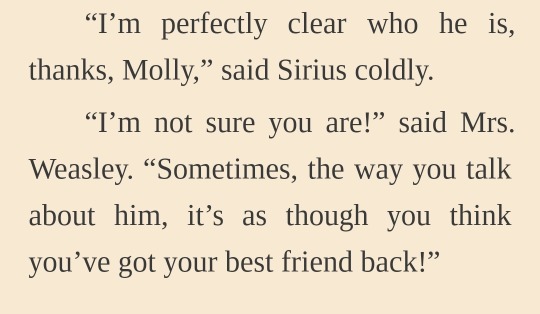
what could he have possibly said that molly thinks is so monstrous?
did he say he wanted to watch harry play quidditch just once again someday and–god forbid–maybe even play with him? did he say he missed harry and wanted him around? did he say he wished harry could come live with him? or that he was capable of looking after himself?
yeah, absolutely unforgivable, molly, well done.
to tell you the truth, not long ago i read a post–not the first, not the last here–discussing the lack of any empathy towards sirius and his trauma in the order of the phoenix, and i think that largely contributed to my curiosity, so i chose to eat the glass reread the book even though i know it's going to hurt. and so far i've been so infuriated with molly and dumbledore.
215 notes
·
View notes
Text
Harry and Snape’s Clashing Communication Styles
It's interesting to think that Harry and Snape don’t have longer conversations in the series, but when they do, their communication styles are so different that they often clash.
Harry’s way of communicating is practical and straightforward. He tends to break down complex ideas into simpler terms that he can easily understand. This makes sense, given his upbringing in a non-magical world and his tendency to rely more on gut instinct than deep theoretical knowledge. For Harry, things are usually black and white, and his directness shows his desire to cut through the confusion and get straight to the point.
Snape, on the other hand, has a more complex and layered way of speaking. His language is precise and often sarcastic, which reflects not just his intelligence but also his disdain for what he sees as Harry’s lack of subtlety. Snape’s use of imagery and metaphor, especially when he describes consepts, gives his speech a poetic, almost philosophical quality. He takes pleasure in showing off his superior knowledge and uses this as a way to belittle Harry.
We see this clash clearly in OOTP during Harry’s first Occlumency lesson:
Snape looked back at him for a moment and then said contemptuously, “Surely even you could have worked that out by now, Potter? The Dark Lord is highly skilled at Legilimency —” “What’s that? Sir?” “It is the ability to extract feelings and memories from another person’s mind —” “He can read minds?” said Harry quickly, his worst fears confirmed. “You have no subtlety, Potter,” said Snape, his dark eyes glittering. “You do not understand fine distinctions. It is one of the shortcomings that makes you such a lamentable potion-maker.” Snape paused for a moment, apparently to savor the pleasure of insulting Harry, before continuing, “Only Muggles talk of ‘mind reading.’ The mind is not a book, to be opened at will and examined at leisure. Thoughts are not etched on the inside of skulls, to be perused by any invader. The mind is a complex and many-layered thing, Potter . . . or at least, most minds are. . . .” He smirked. Whatever Snape said, Legilimency sounded like mind reading to Harry and he did not like the sound of it at all.
For Harry, when Snape mentions Legilimency, it immediately sounds like “mind reading,” which is a reasonable but overly simple way to understand such a complex concept. His quick jump to this conclusion shows his need to make sense of something that feels threatening, but it also reveals his limited grasp of the deeper nuances.
Snape, however, can’t resist mocking Harry’s lack of subtlety. His response is laced with condescension as he insists on the complexity of the mind and dismisses the idea of “mind reading” as something only muggles would think of. Snape’s explanation is detailed and philosophical, contrasting sharply with Harry’s desire for a straightforward answer.
Another great example of their different communication styles comes in HBP when Snape puts Harry on the spot, asking him to explain the difference between an inferius and a ghost:
“Let us ask Potter how we would tell the difference between an Inferius and a ghost.” The whole class looked around at Harry, who hastily tried to recall what Dumbledore had told him the night that they had gone to visit Slughorn. “Er — well — ghosts are transparent —” he said. “Oh, very good,” interrupted Snape, his lip curling. “Yes, it is easy to see that nearly six years of magical education have not been wasted on you, Potter. ‘Ghosts are transparent.’ ” Harry took a deep breath and continued calmly, though his insides were boiling, “Yeah, ghosts are transparent, but Inferi are dead bodies, aren’t they? So they’d be solid —” “A five-year-old could have told us as much,” sneered Snape. “The Inferius is a corpse that has been reanimated by a Dark wizard’s spells. It is not alive, it is merely used like a puppet to do the wizard’s bidding. A ghost, as I trust that you are all aware by now, is the imprint of a departed soul left upon the earth . . . and of course, as Potter so wisely tells us, transparent.” “Well, what Harry said is the most useful if we’re trying to tell them apart!” said Ron. “When we come face-to-face with one down a dark alley, we’re going to be having a shufti to see if it’s solid, aren’t we, we’re not going to be asking, ‘Excuse me, are you the imprint of a departed soul?’
Once again, Harry demonstrates his practical and straightforward approach. He gives a simple, clear distinction based on what would be most useful in a real-life situation—whether the entity is solid or transparent. This shows how Harry tends to focus on what’s immediately relevant and actionable, and Ron’s defense of Harry’s answer highlights this practicality. Ron even points out that in a real-world scenario, Harry’s answer is actually the most helpful, contrasting it with Snape’s more academic approach.
Snape, though, dismisses Harry’s answer as too simplistic and mocks him for stating what he sees as the obvious. Snape’s communication is more about the theoretical and precise understanding of magical concepts. He emphasizes the deeper, more complex nature of an Inferius, which, while academically accurate, is less practical in the context that Harry is thinking of. Snape’s disdain shows that he values this deeper, nuanced understanding more than the direct, practical knowledge that Harry offers.
These moments really bring out the deeper divide between Harry and Snape. Harry approaches things with instinct and a straightforward mindset, while Snape is all about nuance, precision, and seeing the layers in everything. Because they see the world so differently, they struggle to communicate, which only adds to the distrust and misunderstanding between them—a tension that echoes throughout the entire series.
382 notes
·
View notes
Text
Why Harry Potter never become a obscurus
"Harry Potter was punished for accidental magic. If he had been taught that he was being punished because his magic was evil, he could have tried to suppress it. And it would have mutated out of control but his relatives did not teach him that magic was evil. They taught him that it did not exist. It caused him to doubt his sanity because he couldn’t understand why he was being punished. But it did not allow his magic to mutate to the point where it could kill him or anyone else. "( taken from the fict more than magic)
It is is from a fict but i firmly believe that's what happened on canon, hence why it is here and not in my headcanon blog.
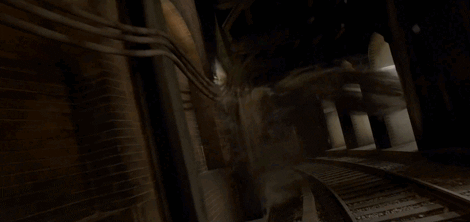
1 note
·
View note
Text
What does it say about Snape that he became a Death Eater?
"Considering:He had been abused as a child and had likely grown up in an unstructured, unbalanced, toxic household where his essential needs were not met, including care and affection.
The mentioned abusive scenario's protagonist (his father) was a muggle and possibly the only one he knew well.His views on wizarding society until the age of eleven came from his mother as far as we know, and her (probably?) being a Slytherin makes it likely she had some sort of pureblood superiority notion (although why she had married a muggle and was still living with him is not clarified upon… did she get pregnant on an adventure and was disowned and somehow got stuck in that situation? Did she just fall in love with a muggle - and maybe later regretted, which might reinforce the anti muggle feeling?).
The only friend and close relation (aside from his parents) he seems to have had until the age of eleven was Lily Evans, and he lost her friendship and possibility of love to his bully.He was RELENTLESSLY bullied in school, the one place he had always hoped to escape to from his abusive, lonely, poverty stricken childhood.Said school's Headmaster had done nothing to punish his bullies when they almost got him killed in a prank, sending the message Snape's life was not important to him or the school. Oh yes, he was alone.
He was not popular / good looking / well dressed / financially secure.He was a halfblood from a poor family in SLYTHERIN.To sum it up, he had been rejected in almost all fronts (family, closest friend/love, authority figures, wizarding society) except maybe one. His Slytherin friends and future death eaters. He was good at spells, curses and potions, and could be accepted among some of his house peers.So, what does it say about Snape that he became a Death Eater?That he did not have the appropriate guidance and social relations support to enable him to make a conscious, thoroughly analysed decision. He had been rejected in all fronts except from the path to become a death eater. Among these people he would hope to be valued and exalted. He wanted to belong, to be accepted and admired, everything he had never had.
Where else could he turn to?
Had he turned his back on the death eaters, what was there for him, at 17? No friends, no authority figures to guide him, no family to support him, no society to accept him.He could've still turned away from that path and ventured down a much harder, lonelier and uncertain road, but how likely is a 17 year old bullied, abused, hurt and possibly afraid boy to have that kind of strength and insight? Is it fair to demand that of someone in those circumstances?It's easy to think how we would never follow that path speaking from our much better prospects.
We like to think we wouldn't choose to become death eaters in his place. But wouldn't we really?If we don't understand what circumstances drove so many people to accept nazism, we don't know how to prevent it from escalating again." (Analysis from quora
27 notes
·
View notes
Text
Guys if you’re going to say Snape protecting the golden trio from a fully transformed werewolf Lupin wasn’t in the books and only the movies so we can’t use that to say he wasn’t that bad- then you can’t use what happened in marauders fanfics to say he was a bad person cause it didn’t happen in the books. Just saying 🤷♂️
325 notes
·
View notes
Text
I agree with this 100%
Severus Snape or the Importance of Body Language
+ A socially-awkward streak of perfection in speech
This is a little thought that has been nagging me since I saw these
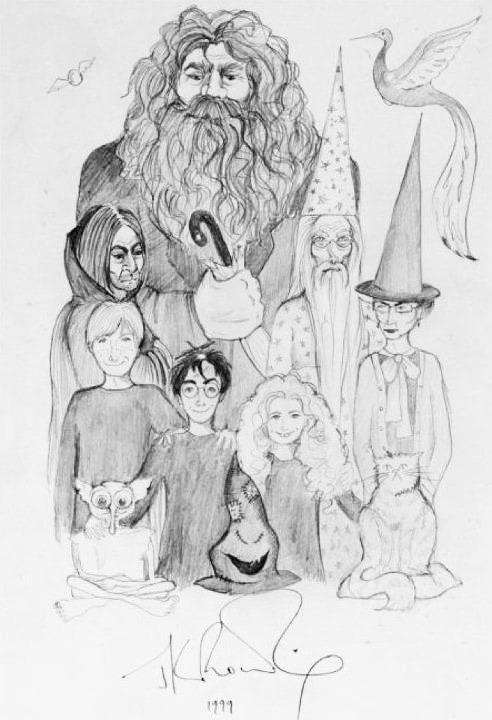
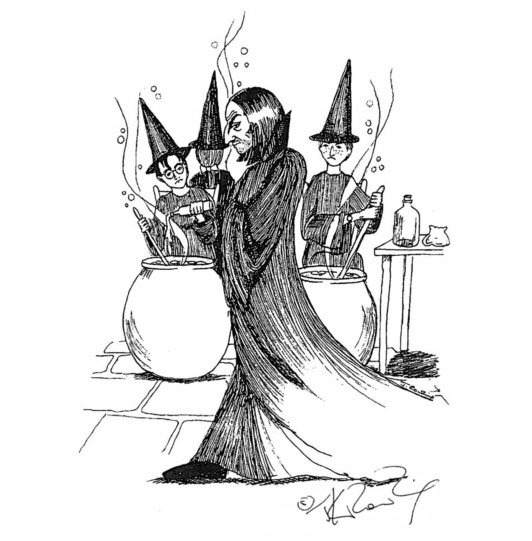
but mostly this

Those are obviously not mine, they are how Rowling viewed Snape in her head (the hats are terrible). I’m not focusing on the cruelty of how she constructed such a character to be ridiculed for his ‘ugliness’, rather I’d like to make you notice—as you guessed—the body language used there.
There is a common example of body language we teach people: when you cross your arms in front of your chest, you are in a posture of defense. This occurs mostly when you confront someone, sometimes someone you disagree with, or a large group of people, for instance during a presentation in front of a class. Teachers will tell you to stop it because it sends a message that you’re closed up, that you feel threatened: the arms are protecting your chest, resting between your body and that of the opponent, they form a shield and they can even hug you in a sense, as though trying to warm you up in winter.
Now, notice how Rowling drew Snape? He constantly joins his arms in front of him. Not only is that a reminder of the arms-crossing I described, but sometimes it evolves into the second but mostly third panel: Snape is pulling the pans of his robes in front of him. For me, it’s not just a message of defensiveness: it’s a message of active self-protection, of being re-assured, of sensed fragility, of having something to hide and protect. Self-comfort, like when you pull a blanket around your shoulders and hold the ends in front of you. It’s pulling something near your heart, in front of an exposed part of the body with vital organs, which adds a sense of secretiveness. Imagine doing that with your coat. Try doing it and study how you feel, what messages you are sending yourself, how people could interpret what you’re doing. So unless his robes are really long, I think this posture is extremely revealing of Snape.
This is not only pictured in her sketches though. It’s in the books each time Snape’s described as an overgrown bat. What do bats do? They retract their wings in front of them, hiding their bodies like this:

(Picture not mine obviously)
So this pulling of the robes in front of him fits exactly with canon.
I have fair belief that this habit—starting with how he felt the need to hide his mother’s clothes as a kid and blushing for the embarassment and the discomfort under the hot sun, starting with the physical assaults as he’s been bullied, starting from how people mocked his looks—has been completely inscribed into him since when he was sexually assaulted, stripped of his underwear in front of everyone, unable to hide himself with his robes. Well there he’s hiding his front constantly. He’s tugging at those robes, securing them before him all right. Maybe whenever he lets them go he feels somewhat exposed, naked? Maybe he needs to grip at something to ‘hang on’? I could say it’s used as to make him imposing and look big in the class, but again, guess why he’d do that?
This is terrible. You’d have to be blind, or really unconscious of how to spot victims of trauma, not to notice the signs. You might not be able to read Snape’s mind, but on the body, he’s an open book. Snape stands no chance in front of Muggles who know where to look and who interpret correctly. A single glance, maybe a single class where you see how he behaves, talks, moves and interacts with students, and you guess everything.
But this is not all:
the brow and mouth lines that indicate stress
the tight lips that indicates hostility, poor social interactions, bitterness
the sad/melancholic look, the mistrustful/condescending one, eyes narrowing -> refusal to communicate
the constant frown that wards off people because of its open hostility
the clothes that cover everything but his hands and face—here Rickman added the knuckle-long sleeves that hides you even more and gives you some sense of comfort and privacy (rape victims are said to use tons of long sweaters and to always wear pants, you sadly know why)
the high collar that hides the neck and back of the head pretty well—well it’s been replaced by the long sleeves in the films
the long curtains of hair that can easily hide a face, hide the nose, maybe when he’s embarassed as well
the constant use of black, but I can’t pinpoint the exact reasons yet
the joining of hands, crossing the fingers for the third sketch, that again indicates how he’s closed up, but also discomfort and is very near to mild self-harm (scratching between the fingers or the palms)
the stumble that can either be a reference to John Nettleship’s 5 o’clock shadow, or a clue to poor grooming and self-neglect
the sallow skin, the yellow teeth and the “yellow finger” that scream self-neglect and how he feels bad under his skin
how he seems to always tilt his head towards the ground, as though defiant but still submissive and feeling as a prey—people uncomfortable with others will look at their feet to close off
the dark circles under his eyes (yep, you spot them on all panels)
the canon gaunt look (poor eating habits) stressed by the pronounced cheekbones, more noticeable on this following early sketch, “Snape brooding on the unfairness of life” which is again a clue to constant negative and depressive mindset

(Notice the pronounced/bobbing Adam apple, also is that a giant table or just something to put a book to read in front of the class like I see on interviews for the press? And again, he’s crossing his arms in front of his chest)
All of those are signs that give a pretty fair insight as to who Snape is inside and how he feels, what he thinks. Obviously there are people who read body language better than me…
I’d like to add this: people with low self-esteem (prone to be targets of radicalization) often think people laugh at them on their back. But for Snape, those insults are real. They haven’t ever stopped. He can’t even fool himself when he can literally read the minds of his students and the people around him. I remember that my saving point to move past a Snape-like behavior, was the realization that people didn’t look at me to laugh on my back—I was normal and inconsequential, and I never felt such a wonderful mind-blown. Snape doesn’t even have this luxury, and I can’t imagine how he could get out of this destructive circle of negativity. No wonder he’s cruel and openly nasty; I often view them as either revenge or defensive tactics (defend yourself from perceived attacks or strike first because the best defense is attack and the person you’ve attacked now knows they mustn’t try funny things with you if they don’t want to get hurt, they better leave you alone). Heck, even his ugliness could have turned into a weapon to instill fear into potential threats. Snape knows how Death Eaters look pretty ugly and how that can intimidate people; students have no luck (‘ugliness ‘attacks’ the eye’).
Maybe I’m reading too much into this, but it strikes that chord damn well. So much in fact, that I love this version of Snape very much.
Bonus
Snape has the habit to require people to use proper terms. For instance, he tells Harry Legilimency is not “mind-reading”; he tells Harry, in HBP, that ghosts aren’t just ‘transparent’ but are the lasting imprint of a departing soul (and Ron will burn him for that, the second time his class laughs at him, and they say Snape is a tyran under whom everybody cowers? He’s losing his grip)
Those are pretty suspicious for me. Where does that need for precision come from? this somewhat sense of perfectionnism? I don’t want to use improper terms right and left, but those are reasons Snape can’t fit in with people. People want to speak fast, they don’t care for details and full specifics in everyday life, and if you speak about ghosts or legilimency, then they’ll know what you’re talking about and they don’t care about the almost-scientific terms—as Ron says, you won’t ask the ghost you’ll see if they’re the imprint of a departing soul. Snape cares very much though. Imagine a kid fixating on a single ‘perfect’ definition, or a man having something akin to obsessive perfectionism… this need to use the exact proper terms, even in informal settings… you get what I mean? Honestly the first thing that comes to mind for this mechanism is autism. Maybe Asperger-like. But what could that precisely be otherwise?
#pro severus snape#severus snape fandom#severus snape#character analysis#not my art#Reblog#body language
1K notes
·
View notes
Text
what did snape do as a death eater? it's a little unclear. but i think it's likely he did not murder anyone. severus is against killing dumbledore. when dumbledore asks severus to prevent draco from damaging his (uncorrupted) soul, severus says “And my soul, Dumbledore? Mine?” which suggests that severus has not committed murder, even when he was a fully-fledged death eater. althought severus was clearly skilled in combat, this implied that he did not commit the same atrocities as other death eaters. personally, i think he mostly utilized his other talents (which other servants of voldemort did not posess), like (dark) spell creation and brewing. and, of course, intelligence gathering, which he did in both the first and second wars. second, this is kind of a sad moment for albus and severus's relationship. because dumbledore is working to maximize good: this plan will save (what's left of) draco's innocence while solidifying severus's standing with voldemort and preserving dumbledore's dignity. we get where dumble is coming from, but he implies that severus's soul is irredeemable. that his suffering is less significant. snape, who for years has been dumbledore's right hand (especially after dumble's own right hand got cursed lol), gets taken for granted. dumbledore has no ill intent here but he's not great at treating individuals as people–he prefers to analyze the big picture (and makes social blunders lol).
399 notes
·
View notes